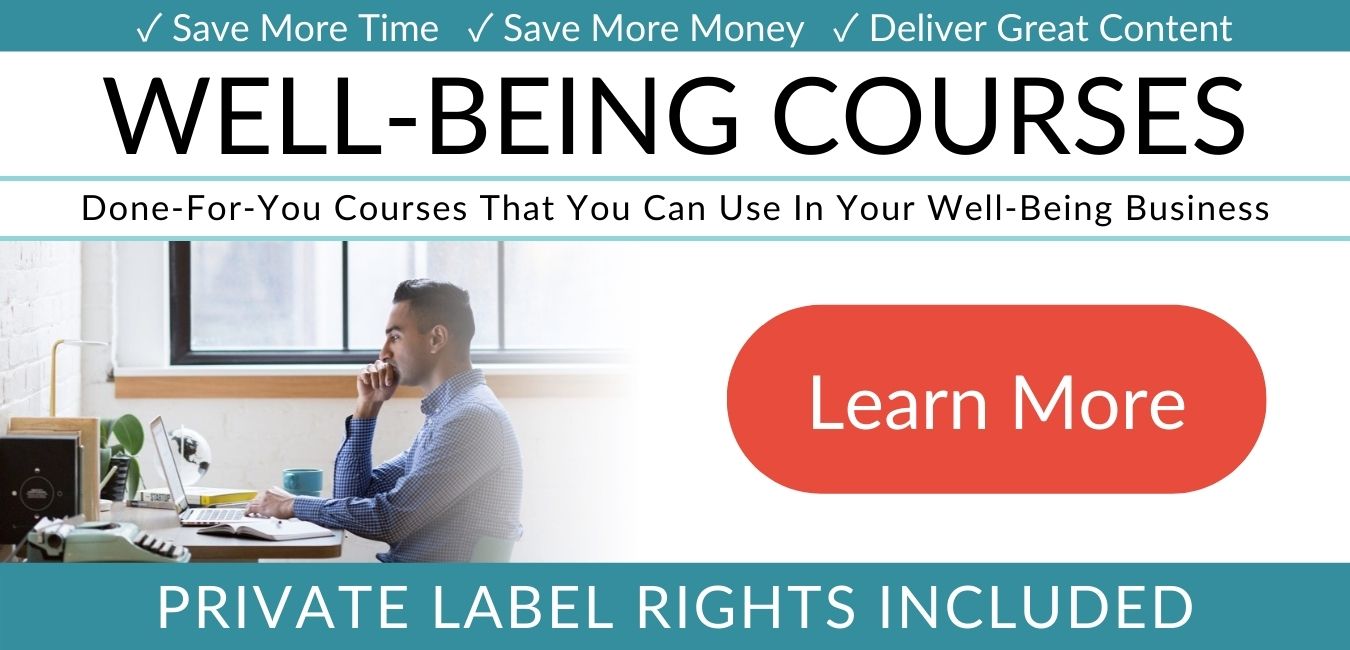19 Ways to Feel Better: Science-Based 'Feel-Good' StrategiesWant to feel less sad, more glad, and just feel better overall? There are lots of science-based ways to boost positive emotions, decrease negative emotions, and make yourself feel better. Here are some of the best strategies.
*This page may include affiliate links; that means I earn from qualifying purchases of products.
Life can be tough. Sometimes bad things happen that make us feel bad. Sometimes we do things that make us feel bad. And sometimes we feel bad for no obvious reason. All we know is that we want to feel better...but we're just not sure how. Luckily, psychological research can show us lots of different strategies we can use to feel better.
Best Ways to Feel BetterPractice Gratitude
One of the best ways to start feeling better fast is to practice gratitude. You can write a gratitude journal, gratitude notes, or a gratitude list. These can result in a quick boost of positivity. Think Positive Positive thinking involves transforming negative thoughts into positive thoughts, noticing positive aspects of a situation, and challenging pessimistic thoughts (Bekhet & Zauszniewski, 2013). The more we can focus on the good stuff, the better we'll feel. Accept Negative Emotions If we just don't feel like being positive, that's okay. We can still feel better by accepting our negative emotions. Our negative emotions actually serve important functions. Feeling sad can help us get social support from others, feeling anxiety can help us prepare for possible threats, and feeling angry can help us fight to right the wrongs in our lives. So accepting these emotions for what they are and not "feeling bad about feeling bad" is an important part of feeling better. Are You a Therapist, Coach, or Wellness Entrepreneur?
Grab Our Free eBook to Learn How to
|
|
Passive/Calm Positive Emotions:
|
Depending on the emotions you want to feel, you would take different actions to feel them. For example, if you want to feel happier, you might engage in strategies to boost happiness. But if you want to feel relaxed, you might try using some relaxation techniques.
Strengthen the Positive Networks in Your Brain
When I was in college, I volunteered for a memory study. We were asked to remember fake characters, each of which had a name, features, and interests. We were then tested on how much we remembered about each character.
I couldn't remember a single one of the characters' favorite sports but I remembered all of their astrological signs. Sounds weird right? Well not really. I know virtually nothing about sports, but my mom is an astrologer so I grew up hearing about astrological signs. So my brain had lots of strong connections for information about the astrological signs and that made them easier to remember and bring to mind. It's because when our brains have more information (or stronger neural networks) related to a topic, the easier it is to recall things related to that topic (Newberry & Bailey, 2019).
The same is true for all topics. So the more positive words, information, and memories we have related to positive things, the easier it should be to bring positive information to mind. This suggests that strengthening our brains in ways that increase our positive knowledge should help us feel better. One way to do this is to memorize positive words. Check out our positivity workbook for a science-based positive word collection (Bradley & Lang, 1999).
I couldn't remember a single one of the characters' favorite sports but I remembered all of their astrological signs. Sounds weird right? Well not really. I know virtually nothing about sports, but my mom is an astrologer so I grew up hearing about astrological signs. So my brain had lots of strong connections for information about the astrological signs and that made them easier to remember and bring to mind. It's because when our brains have more information (or stronger neural networks) related to a topic, the easier it is to recall things related to that topic (Newberry & Bailey, 2019).
The same is true for all topics. So the more positive words, information, and memories we have related to positive things, the easier it should be to bring positive information to mind. This suggests that strengthening our brains in ways that increase our positive knowledge should help us feel better. One way to do this is to memorize positive words. Check out our positivity workbook for a science-based positive word collection (Bradley & Lang, 1999).
How to Feel Better About Yourself
Feeling better is not just about feeling more positive emotions. It's also about feeling better about yourself. How do you feel better about yourself? Here are some strategies that can help.
Cultivate Self-Compassion
Self-compassion helps us feel better about ourselves. We're not so judgmental of our thoughts, emotions, and behaviors, and we treat ourselves better. Here are a bunch of tips on how to cultivate self-compassion.
Boost Self-Worth
In an earlier version of my well-being quiz, I analyzed the data and found that low self-worth was the single biggest contributor to unhappiness. Indeed, it makes sense that if we feel badly about ourselves, it's going to be harder to make ourselves feel better. So it may be helpful to explore what makes you feel authentic and take actions to boost self-worth.
Cultivate Self-Confidence
When we are confident, we are more likely to take the necessary actions we need to take to improve our lives. As a result, it can be easier to feel better more of the time. Learn more about self-confidence here.
Cultivate Self-Compassion
Self-compassion helps us feel better about ourselves. We're not so judgmental of our thoughts, emotions, and behaviors, and we treat ourselves better. Here are a bunch of tips on how to cultivate self-compassion.
Boost Self-Worth
In an earlier version of my well-being quiz, I analyzed the data and found that low self-worth was the single biggest contributor to unhappiness. Indeed, it makes sense that if we feel badly about ourselves, it's going to be harder to make ourselves feel better. So it may be helpful to explore what makes you feel authentic and take actions to boost self-worth.
Cultivate Self-Confidence
When we are confident, we are more likely to take the necessary actions we need to take to improve our lives. As a result, it can be easier to feel better more of the time. Learn more about self-confidence here.
Video: How to Be a Friend to Yourself
How to Feel Better After a Breakup
Breakups can be tough. There can be a sense of loss, rejection, and aimlessness. Here are some strategies that might help
1. Write a ‘Feel Better Soon’ Letter to Yourself
Research shows that looking at our current situation from another point in time can decrease our current negative emotions and make us feel better (Bruehlman-Senecal & Ayduk, 2015). So if you've experienced a breakup, it may be helpful to write a letter to yourself from some time in the future. Tell yourself to "feel better soon" and talk about all the great stuff your future self is doing once this challenging time has passed.
2. Stand up to Your Inner Critic
If a breakup has led you to feel badly about yourself, take this opportunity to stand up to your inner critic. We all make mistakes and not all relationships survive, but that doesn't mean we aren't a good person, deserving of love. Don't forget to remind yourself of this.
Research shows that looking at our current situation from another point in time can decrease our current negative emotions and make us feel better (Bruehlman-Senecal & Ayduk, 2015). So if you've experienced a breakup, it may be helpful to write a letter to yourself from some time in the future. Tell yourself to "feel better soon" and talk about all the great stuff your future self is doing once this challenging time has passed.
2. Stand up to Your Inner Critic
If a breakup has led you to feel badly about yourself, take this opportunity to stand up to your inner critic. We all make mistakes and not all relationships survive, but that doesn't mean we aren't a good person, deserving of love. Don't forget to remind yourself of this.
How to Feel Better After Losing a Job
Numerous studies show that training our attention away from the negative and onto the positive improves our well-being (MacLeod, et al., 2002; Wadlinger & Isaacowitz, 2008). So to feel better after losing a job, this may be an effective strategy.
For example, we can use positive reappraisal. Reappraisal is an emotion regulation strategy where we shift our focus onto the positive things (or away from the negative things). In other words, we look for silver linings in our difficult situations. For example, if we lose a job, we can tell ourselves: "Maybe another better job will come along", or "This is an opportunity to explore something we're really passionate about". Here is a positive reappraisal activity to help you further cultivate this skill.
For example, we can use positive reappraisal. Reappraisal is an emotion regulation strategy where we shift our focus onto the positive things (or away from the negative things). In other words, we look for silver linings in our difficult situations. For example, if we lose a job, we can tell ourselves: "Maybe another better job will come along", or "This is an opportunity to explore something we're really passionate about". Here is a positive reappraisal activity to help you further cultivate this skill.
Meditations to Feel Better
I am a huge fan of using free guided mediations online to feel better and boost my mood. I listen to them while I work (I'm listening to one right now as I write this post!) and I listen to them to help me sleep. Here is a mediation that hopefully helps you feel better too.
Video: ‘Feel Good’ Meditation
Feeling Good vs. Feeling Bad
Negativity is often contrasted with positivity. Similarly, emotional wellness or well-being is often contrasted with emotional ill-being. In the same way, feeling good may be contrasted with feeling bad. But all of these are really on a continuum. This continuum spreads from feeling as bad as we possibly could to as good as we possibly could. To feel better, we only need to move up the continuum a small bit. And even that small bit of improvement may mean the world to us, especially if we've been feeling bad for a while.
Awhile back, I ended up getting really stressed and really sick. I was unable to eat, work, or even see my friends much for many months. I didn't feel better each day, or even each week, but each month I moved up that continuum a little bit. And that's how it goes when it comes to mental health and physical health. We might take actions that make us feel amazing really quickly. But more often, we have to take small actions that add up over time, taking us from feeling terrible to feeling less terrible, and eventually to feeling really great. Try to keep this in mind, and as you go, look back on where you were to see how far you've come.
Awhile back, I ended up getting really stressed and really sick. I was unable to eat, work, or even see my friends much for many months. I didn't feel better each day, or even each week, but each month I moved up that continuum a little bit. And that's how it goes when it comes to mental health and physical health. We might take actions that make us feel amazing really quickly. But more often, we have to take small actions that add up over time, taking us from feeling terrible to feeling less terrible, and eventually to feeling really great. Try to keep this in mind, and as you go, look back on where you were to see how far you've come.
Video: Feeling Good About Feeling Bad
Images to Help You Feel Better
All the science is great for helping us learn strategies to feel better. But hey, sometimes we just want to look at cute things, am I right? (There's actually science that suggests positive images are helpful too.) Sometimes it's just easier to let our brains rest and let the feel good-ness wash over us. So here ya go:
Quotes to Help You Feel Better
Here are a few quotes that might help you feel better.
- “You always pass failure on the way to success.” -Mickey Rooney
- “No one is perfect - that’s why pencils have erasers.” -Wolfgang Riebe
- “In every day, there are 1,440 minutes. That means we have 1,440 daily opportunities to make a positive impact.” -Les Brown
- “The only time you fail is when you fall down and stay down.” -Stephen Richards
- “You are never too old to set another goal or dream a new dream.” -Les Brown
Questions to Ask Yourself to Feel Better
Are you still feeling stuck in the mud? Keep pushing yourself. Here are a few questions to ask yourself that can help you feel better:
- What positive qualities do you have?
- What are your most impactful strengths?
- What are you grateful for?
- What people or activities do you like? Take a moment to savor them.
- Is there anything else that makes you feel better? Go do it!
More Reading on How to Feel Better
Here are a few more articles that can help you keep building the skills and doing the practices that help you feel better.
Books Related to Feeling Better
If you’d like to keep learning more, here are a few books that you might be interested in.
Final Thoughts on How to Feel Better
If you want to feel better, you can. Just give it time. Take some actions to improve your conditions, and always be gentle with yourself.
Don't Forget to Grab Our Free eBook to Learn How to
Grow Your Wellness Business Exponentially!
References
- Bekhet, A. K., & Zauszniewski, J. A. (2013). Measuring use of positive thinking skills: Psychometric testing of a new scale. Western Journal of Nursing Research, 35(8), 1074-1093.
- Bradley, M. M., & Lang, P. J. (1999). Affective norms for English words (ANEW): Instruction manual and affective ratings (Vol. 30, No. 1, pp. 25-36). Technical report C-1, the center for research in psychophysiology, University of Florida.
- Bruehlman-Senecal, E., and O. Ayduk. 2015. “This Too Shall Pass: Temporal Distance and the Regulation of Emotional Distress." Journal of Personality and Social Psychology 108 (2): 356.
- MacLeod, C., Rutherford, E., Campbell, L., Ebsworthy, G., & Holker, L. (2002). Selective attention and emotional vulnerability: assessing the causal basis of their association through the experimental manipulation of attentional bias. Journal of abnormal psychology, 111(1), 107.
- Newberry, K. M., & Bailey, H. R. (2019). Does semantic knowledge influence event segmentation and recall of text?. Memory & cognition, 47(6), 1173-1187.
- Wadlinger, H. A., & Isaacowitz, D. M. (2008). Looking happy: The experimental manipulation of a positive visual attention bias. Emotion, 8(1), 121.
Are You a Therapist, Coach, or Wellness Entrepreneur?
Grab Our Free eBook to Learn How to Grow Your Wellness Business Fast!








